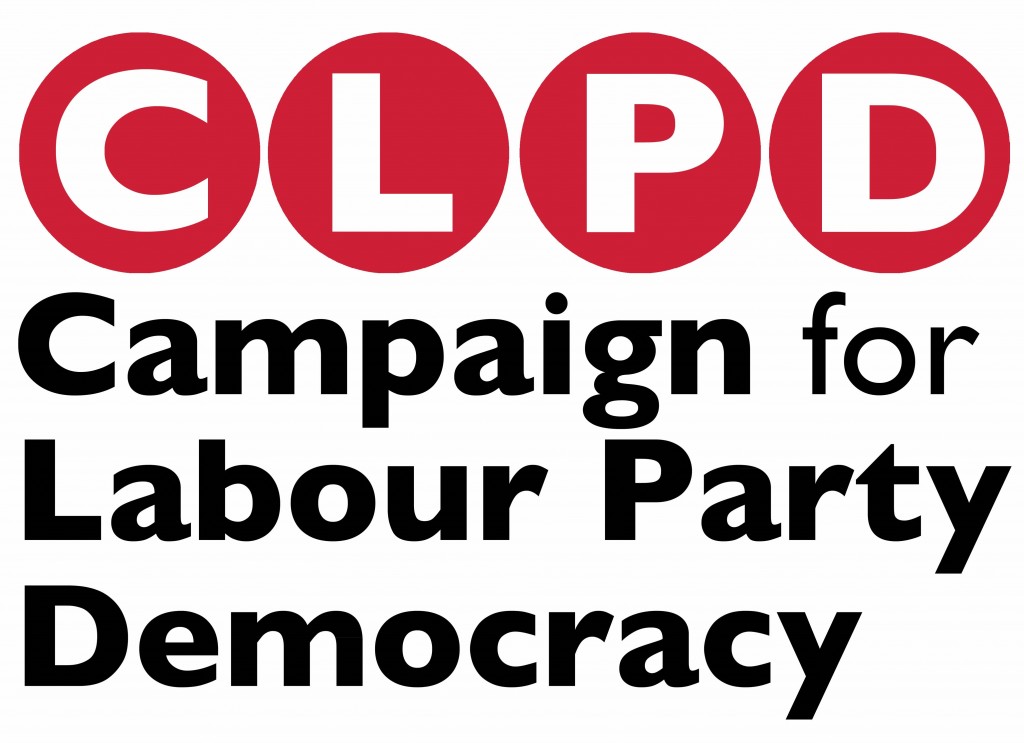Stan Keable of Labour Party Marxists gives his assessment of the 40th AGM of the Campaign for Labour Party Democracy
ONE COULD NOT HELP FEELING ADMIRATION for the dogged persistence of the 80 or so (mostly) ageing Labour Party comrades who packed into the Brockway room at Conway Hall for the February 23 CLPD annual general meeting. Where other leftwingers have been driven out of the party or given up the ghost in the face of New Labour’s hollowing out of party democracy, or resigned in disgust at Blair’s participation in the 2003 invasion of Iraq, these Labour socialists had stuck with their party and their key aims: “a real policy-making annual conference”; “an effective and accountable NEC”; and “defence of the trade union link” (www.clpd.org.uk).
But along with admiration came pity. Tenacity has long since morphed into stubbornness and blind faith in an illusory clause-four state socialism which never can and never should exist. The welfare state, with its council housing and national health service, its bureaucratic management and patronising style, was not generously delivered gratis to a grateful working class, courtesy of an enlightened, socialist Labour government. It was part of the social democratic settlement across western Europe – a concession to placate the post-war working class and keep it from socialism. A concession financed by an ascendant US superpower with its Marshall Plan. In World War II, Stalin’s bureaucratic ‘socialism’ had vastly extended its territory into eastern Europe, and mass communist parties existed in the west, constituting a potential threat to capitalism.
These conditions do not exist today, and are not about to be replicated. In particular, the US, although still the top-dog capitalist power, is in decline (along with the decline of the capitalist system as a whole), and is not in a position to finance a recovery like the post-war boom.
But a return to Clem Attlee’s 1945 Labour government and the myth of Keynesian-managed capitalism is what the CLPD comrades hopelessly long for – and they imagine this to have been a first step in the implementation of Sidney Webb’s pseudo-socialist clause four, for the nationalisation of the “means of production, distribution and exchange”. Clause four was cunningly inserted into the Labour Party constitution in 1918 to keep workers inspired by the 1917 Russian Revolution within the safe limits of parliamentary socialism. Significantly, the “immediate cause” of the foundation of the CLPD “was Harold Wilson’s rejection in 1973 of the proposal to take into public ownership some 25 of the largest manufacturing companies, covering the main sections of the economy” (http://home.freeuk.net/clpd/history.htm).
Kelvin Hopkins, MP for Luton North, opening the meeting, claimed that CLPD had “saved the soul of the Labour Party” by stopping “Blair mark two” – ie, David Miliband – from becoming party leader. CLPD influence had been decisive. Comrade Hopkins was campaign manager for the left’s first choice, Diane Abbott (he omitted to say: after John McDonnell had been betrayed), but CLPD also campaigned, successfully, for second-choice votes to be cast for Ed Miliband. The Blairites are “not the force they once were”, he claimed; and, with touching naivety: Ed Miliband is “not yet a man of the left”. We’ve “got to get the Labour front bench to reject neoliberalism”, give up their “‘too far, too soon’ nonsense” and emulate the public service spending and growth of – wait for it – Ecuador. “Let’s have 1945 all over again”; the 1945 election manifesto was a wonderful thing (forgetting Labour’s imperialism). “If it wasn’t for one or two mistakes in 1951,” he mused … And then: “If we collected a fraction of the taxes due, we could pay for all the things we need, and the debt would start to come down.” So much for socialism; managed capitalism will do fine, comrade Hopkins imagines.
In the afternoon we were treated to similar well-intentioned misleadership from comrade Ann Pettifor, an economics expert who, in the 1970s, had been a member of “the Alternative Economic Strategy group”. The present crisis was not one of international capitalism, she said, but of British capitalism. The trouble started with deregulation of the banks, which began in 1971. The 1944 Labour Party pre-election policy document is “as relevant today …” What must be done is to “reposition finance as servant to production – and labour”. If wishes were horses, beggars would ride. It is that beautiful, mythical, managed capitalism again. To top it off, Cathy Newman announced that Ken Loach’s new film Spirit of 1945 is in the cinemas from March 15. But is it a documentary or fiction? She did not say.
The comrades were buoyed up by the presence of a lively group of younger members preparing to make a socialist splash at the Young Labour conference (Leicester, March 2-3), as they did last year. The Blairites who run Young Labour “make up the rules as they go along”, claimed Conrad Landin and Dominic Curran. YL has no independent rules – “just a chapter in the Labour Party constitution”.
Other signs of hope were mentioned. The numbers attending CLPD fringe meetings at the 2012 party conference were up, and treasurer Russell Cartwright reported that individual membership in 2012 reached 218, including 17 new members – evidently a small turn of the previously outgoing tide, and already in the beginning of 2013 a further 17 new members had joined. Alongside the individual members, there are also a few affiliates: 18 CLPs and nine other organisations, including four national trade unions.
Chris Mullin was unable to attend, so his prepared speech, entitled “A trip down memory lane”, was read out by Jon Lansman, who added his own potted history of the organisation, as did Leicester South MP Jon Ashworth. We were reminded of the major achievements of the organisation in advancing party democracy. Mandatory reselection of parliamentary candidates before each election was achieved by 1980, so Labour MPs no longer had a seat for life. Election of the party leader by the whole party, not just the MPs, was achieved in January 1981. The CLPD had originally campaigned for election of the leader by conference, but the system adopted was an electoral college of three parts – MPs, Constituency Labour Parties and trade unions. The demand that every parliamentary short list must include a woman was achieved by 1988. As comrade Gary Heather commented, this rule had been “used and abused politically, but was nevertheless the right thing to do”.
So the CLPD can chalk up some ‘successes’, it seems. However, for Labour Party Marxists, the post of party leader is an anti-democratic abomination, with its corrupting power of patronage, dispensing jobs and prospects to careerists in and outside of parliament (labourpartymarxists.org.uk/aims-and-principles).
Labour Party NEC member Christine Shawcroft highlighted the frustration delegates felt at the 2012 party conference when the chair ignored perfectly valid calls for card votes, after they had obviously announced the wrong result on a show of hands. “Unite [the union] is angry about card votes,” reported Jon Lansman. So the CLPD included this in its Charter for a Democratic Conference, which the AGM adopted and “launched” – overwhelmingly, on a show of hands. “Calls for card votes must be respected,” it says. I wonder if the 2013 conference chair will comply … The charter sets out a wish list of improvements in the way conference is run. The conference arrangements committee “must restore its own influence (regaining control of conference from party bureaucrats, meeting without officials)” – bravo! – “and restore the role of conference as the party’s sovereign body”. More than 50% of conference time should be reserved for delegates speaking in policy debates – limiting the misuse as a public relations exercise. The criteria for motions and rule changes should be “more flexible and fair”, and voting procedures must be “fair and democratic”. Apple pie, surely? Lastly, “conference decisions and all papers should be available to party members on Membersnet” – but, strangely, there is no demand for them to be available to the public – an obvious requirement if we want to transform Labour into a mass workers’ party.
Now, an organisation which campaigns for democracy must itself be a model of good democratic practice, an embryo of what it is campaigning for in the party. But I had mixed feelings about the relaxed, easy-going consensus which prevailed at this meeting. The atmosphere was certainly friendly and inclusive, and anyone who wanted to speak had only to raise their hand and the chair allowed them to comment on the business under discussion. No time was given over for real debate on the motions, however, and almost every proposal was quickly voted through – on the understanding, it seems, that the EC would be free to amend and embellish the text where it thought fit. That was certainly the case, for example, with respect to the charter: although a text was voted on, comrades were invited to send in any further ideas for inclusion by February 28, in time to be considered at the first EC meeting.
A similar inclusiveness prevails with respect to the EC itself. Although a list of EC nominations was voted through with no discussion – and no scrutiny by the AGM as to who the comrades were or what exact politics they stood for – the longstanding secretary, Peter Willsman, blithely announced that “all are welcome on the EC” who are “willing to work hard for the organisation”. Incredibly, for an organisation of 218 members (the 2012 total), 188 of whom were, so far, paid up for 2013 (the treasurer announced), the EC nominations list which was adopted wholesale showed 43 postholders, not to speak of the 18 regional organisers (for 11 listed regions), along with representatives of the various affiliates.
The conference, then, seems to have functioned as a willing rubber stamp for the politics and proposals put before it by its trusted leadership – politics which, as I have shown above, are, to put it mildly, badly flawed.
_____
This article also appeared in Weekly Worker No 951, February 28 2013: http://www.cpgb.org.uk/home/weekly-worker/951/clpd-trip-down-memory-lane-with-the-hopelessly-hopeful





